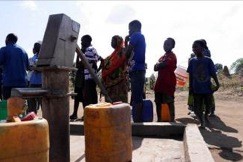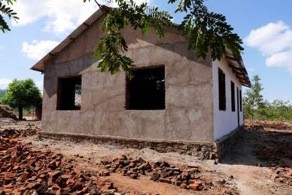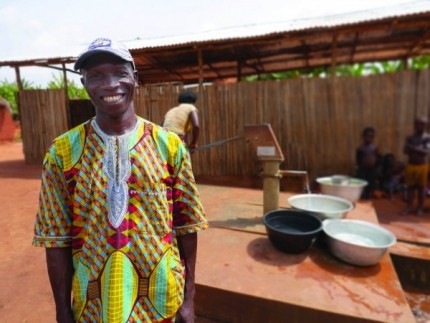
Before receiving a deep-capped well, the villagers of Windjinnawa, Benin knew that the only water available to them was unsafe and could cause them to contract deadly diseases. Still, they drank the dirty water because they had no other option.
“We used to get our water from the swamp,” Village Chief Jacques told the Water for Life Initiative team during a visit in August. “We know that it is not potable, that it is dirty water, but we had no choice. When we drank it, both kids and adults would get sick. Kids have died because of cholera (a waterborne disease).”
Once GAiN provided a well for Windjinnawa, the difference in health was immediate and significant. There was no more sickness caused by contaminated water. Villagers were able to save money because they no longer had to pay for hospital visits or medicine for treatment of illnesses.
“People were amazed,” Jacques recalled the first sight of clean water from the well. “They could not believe it. They were asking, “Is this clean water that is coming out of here?” This is some kind of dream for us. We never thought we would have clean water in our village.”
Since the addition of the well in the village, Windjinnawa set up a system to collect 10 CFA francs ($0.02 CAD) per bucket, putting the money aside for well maintenance and possible future repairs.
“For people [10 CFA francs per bucket] is affordable. The well has brought them so much relief from going to the swamp, which is even farther. They’re happier to pay 10 francs per bucket than going to the swamp.”
Jacques aspires that the village will be able to save enough money from the funds collected to build a water tower, to get water pumped directly to family homes.
Until then, GAiN’s water program continues to make an impact in Windjinnawa households through different community education and health opportunities.
Jacques explained how he and other villagers are implementing what they learned in hygiene and sanitation trainings. He gave the example of putting a lid on the bucket after filling it up with water, and having soap next to it, ready for use.
“We use the handwashing stations and even small children are taught to wash their hands before they do anything.”
Gender sensitivity trainings also made a great impression on him. “When there is mutual understanding between the man and the woman in the house and when you actually apply the teachings in your household, it sure brings peace.”
WANT TO GIVE THE GIFT OF CLEAN WATER TO A VILLAGE?
GIVE HERE
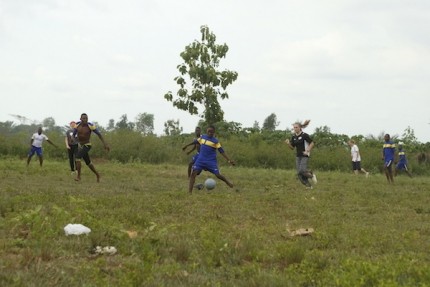
“Sport draws people together and creates community. It’s really neat how just one single soccer ball and an open field can bring people together. You can have a relationship with someone even though you don’t speak the same language.” – Stephanie McDonald, Benin LIFE Team trip co-leader
When sports are used in conjunction with humanitarian work, great things can happen. In May, GAiN partnered with SportAid, a non-profit organization that uses sport as a tool to help impact disadvantaged communities, to organize a trip to Benin with the Trinity Western University women’s soccer team.
The team of 25 women, plus 12 others (coaches, family members and media), flew to Benin expecting an eye-opening and challenging experience.
On their first full day, the team went on a tour of four different villages, seeing the progression of a village without a well to a village with a full-working deep-capped well. They started with seeing firsthand where villagers had to go to get their water — a swamp situated at the bottom of a hill. The sight of a woman gathering dirty water into a basin really impacted the team, many of whom had never left Canada before this trip, bringing the heartbreaking reality of the water crisis right before their eyes.
In the second village, they got to see the well-drilling team at work and ask them questions; while in the third village, they had the chance to witness the flushing of a well. This is a necessary step in the installation process, where dirty water is sprayed from the well before eventually spraying clean water. The transformation from seeing brown and muddy water to clear water was an inspiring sight for the team.
Lastly, they visited a village with a completed well that was in full use.
Some of the team got to help get water for villagers, using the hand pump and carrying water basins on their heads.
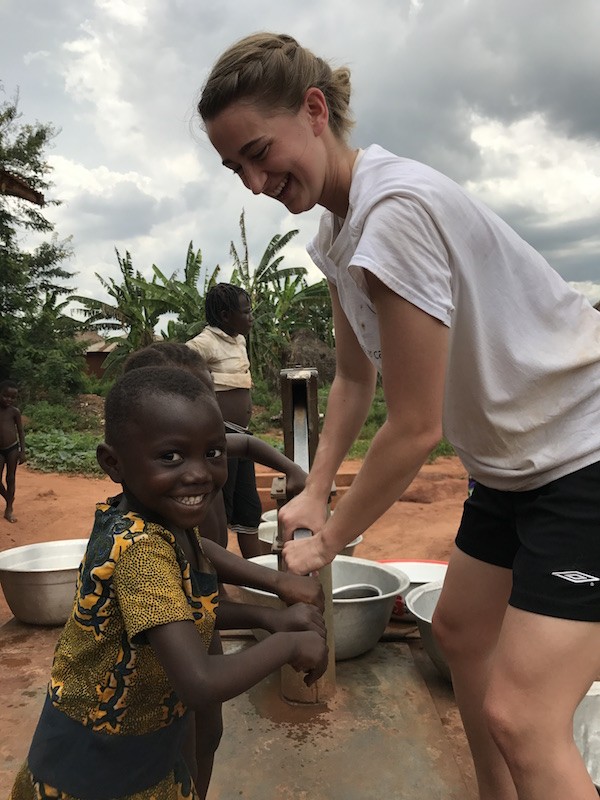
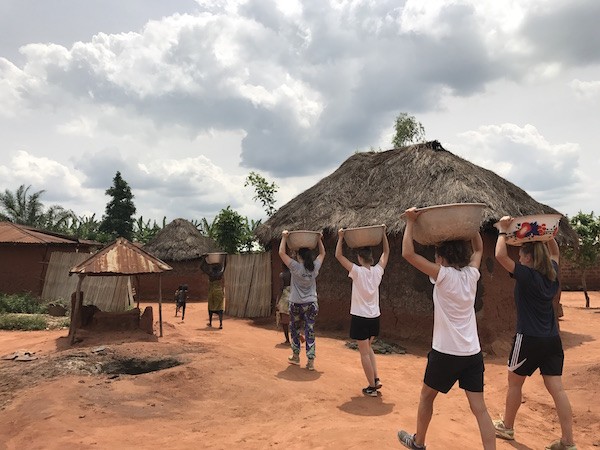
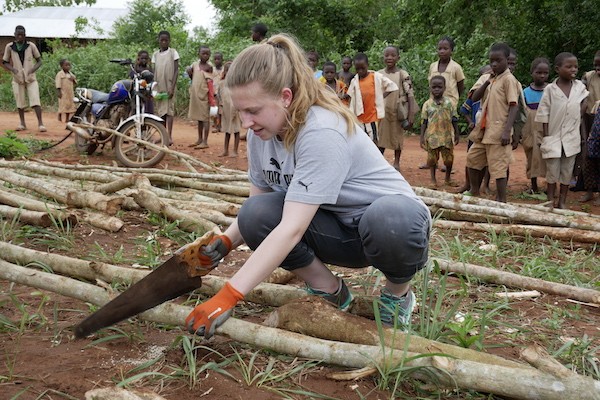
The rest of the trip consisted of soccer games, village chores and construction. The team split up into three groups to build concrete pads for wells and help construct church buildings.
Of course, soccer played a significant role during their time in Benin. The women had a chance to play with the local soccer team (all men), splitting into two mixed teams of women and men, instead of playing against them. Later in the trip, they also played against a local women’s team, further experiencing the power that sport has to break down cultural and language barriers.
“The community speaks the language of soccer even though we have this language barrier,” Brooklyn, one of the team participants, said, recalling a day they played a soccer game outside the house and people gathered around to spectate. “It was so fun to have the community come out and watch us play [even though] they didn’t know us and we couldn’t speak to them.”
It was the relationships that they made with village children that really stuck with the team, McDonald observed.
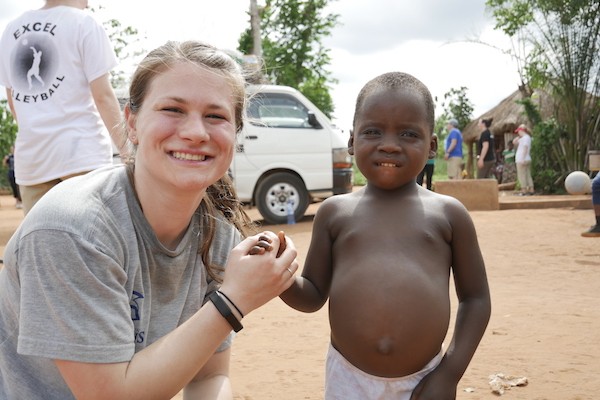
“A highlight with a lot of the women was playing with different kids in the villages and getting to use something that a good portion of their lives is consumed with. Playing soccer can be used to engage and show love to people.”
“It was amazing to see how these kids get such joy out of having a soccer ball,” expressed Brooklyn. “[Something] that brought sheer joy to me was that whenever we brought out a ball, even though there was a language barrier the kids instantly knew we were just playing soccer. [They] split up into two teams.”
The slowed down culture of Africa and the meaningful relationships they made during their short trip inspired the team to be more present in their everyday lives when they returned home.
“They want to make the relationships here, back in Canada, more meaningful through touch and face-to-face,” McDonald explained. “Quite a few women had told me [they] were challenged to bring that aspect back home.”
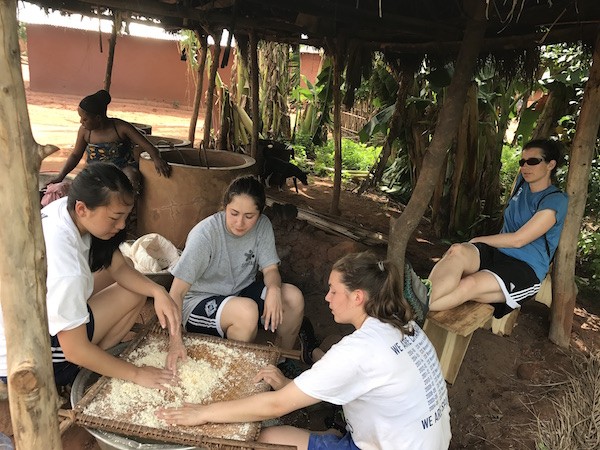
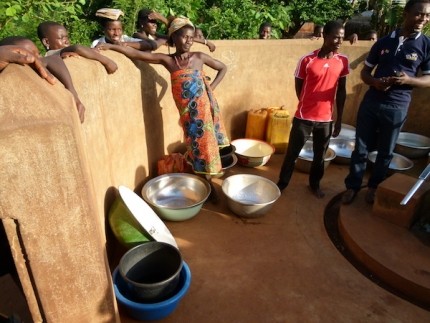
In a village where you have to put chemicals into dirty water to make it drinkable because cleaner water is 15 kilometres away, it is no surprise that providing a deep-capped water well becomes a major event.
That is what happened in Hountakon, Benin.
The entire village came out to watch the installation of a new water source that would provide them with accessible, clean and safe water.
Hountakon’s well was just one of 55 wells that our Water for Life Initiative (WFLI) team visited during their trip to Benin and Togo in April 2016.
Adjaha Vodje, Benin also received a well, which has made a significant physical and spiritual impact on the village.
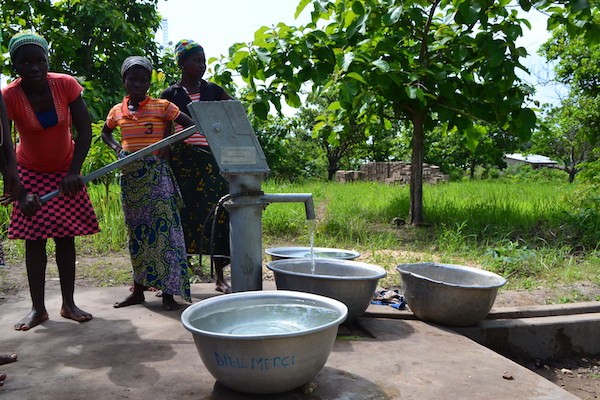
Before the well, people were forced to spend the entire night searching for enough water to fill a bucket. Dry seasons were the worst. Some people would even travel to a city and buy water.
“The need for water is really big and it has been a great tool for us to demonstrate God’s love in the area. The water is really giving true life to every person,” said Pastor Ansel, local pastor. “The presence of the water well in the village has eliminated the fatigue of people and the difficulties that we had to face in the past. I lack words to describe what it means to us!”
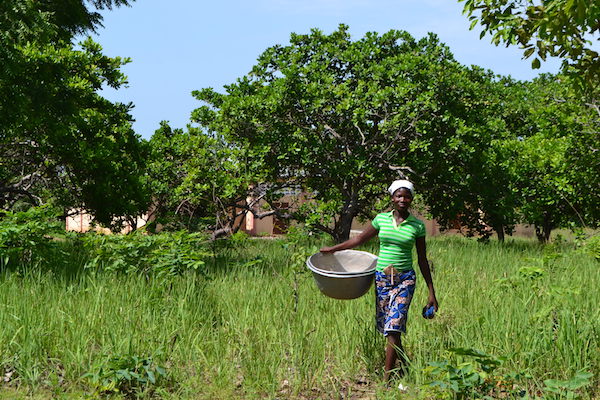
The team noticed that in southern Benin, more villages desire to upgrade their wells to a water tower. In fact, many are getting access to electricity or can rent a generator for 2,000 CFA ($4.40 CAD) per day.
Gbeze-Mouzouhoue, Benin is one of the villages that has upgraded their well by installing an electric pump.
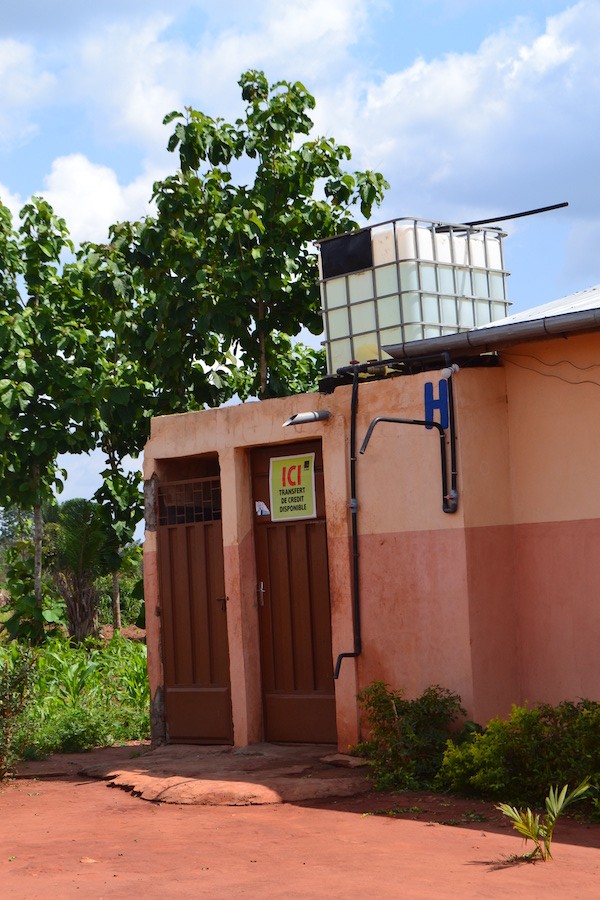
The village used to rely on rain water that was collected in a tank that sat on top of the village clinic. The clean water provided by the well means that the medical clinic can run more efficiently and cleanly.
“When the patient is thirsty, they cannot wait until the water to come from a distance! And it’s so precious for us and it’s really helpful to performing our job well,” the clinic’s head nurse commented. “When you come to a clinic and have no water to wash the body, people just won’t come!”
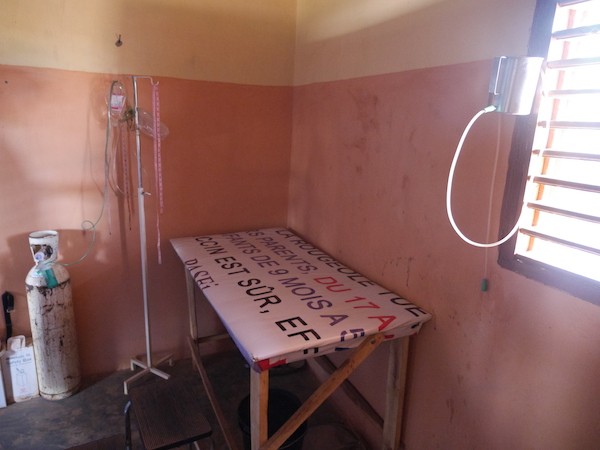
Now that clean water is accessible, villagers no longer have to worry about going 10 km to the next village for unaffordable water. They are able to pay only 25 CFA ($0.05 CAD) per 20L of water, with the money going toward the maintenance of the pump.
Wells are also changing lives in Togo. We provided a well to the village of Zooti Kpota back in August 2015. Since then, the well has continued to provide clean water for the village.
We also partnered with the JESUS Film Church Planting Strategy who partnered with a local church in the village. About eight months later, the local pastor was able to talk about how inspiring the changes have been to the church and its people. Churches have been growing in number and church members have been growing in their faith. He also spoke with great enthusiasm about some of his visions for other projects. One thing he plans to do is start a latrine project in the village for proper hygiene and sanitation.
The positive effects of a water well in a village can be seen quite quickly and with each passing year and the faithful support of our partners, plans will continue to be implemented so that lives are transformed.
WOULD YOU PARTNER WITH US TO HELP IMPACT EVEN MORE COMMUNITIES?
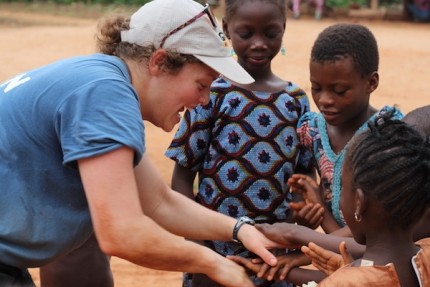
“I think I had a romanticized idea of what the trip was going to be like,” Kyra admitted about the LIFE Team to Benin that she participated in last May. She was ready for a life-changing experience, and a life-changing experience is what she got, but it happened in a way she did not expect.
“Going into it, the focus was more on myself and how we were going to do this really great thing. But as we were there, the leaders were talking about how it is more about partnering with our brothers and sisters in Christ and working together. It is not us coming from North America to make things [better]. You go in expecting to help all of these people, but really, it changes you.”
For the two and a half weeks she was there, Kyra got the chance to work on a variety of projects with the Water for Life Initiative.
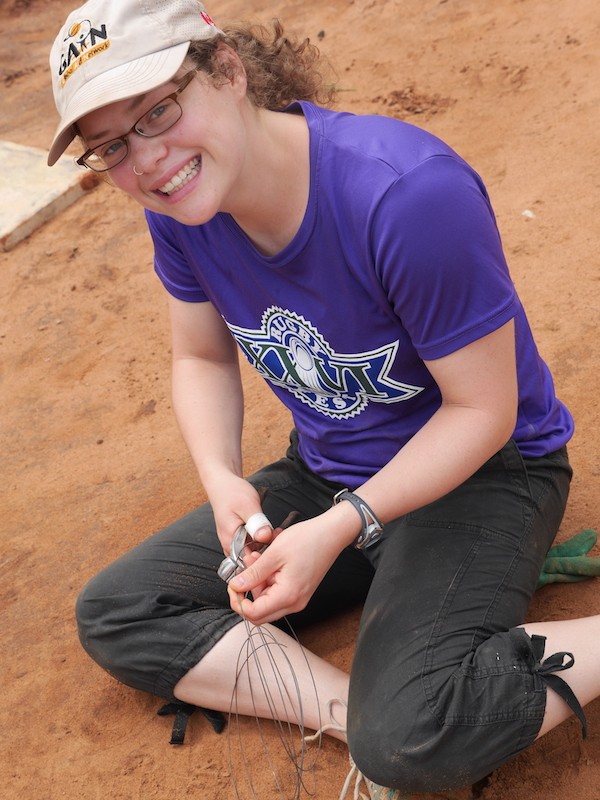
Each one she worked on – whether it was building well pads, performing a drama with the local DRIME team or helping build parts of a church – had its fair share of challenges and uncomfortable moments, but pushing through was worth it.
“One of the main things [I learned was] the importance of stepping out in faith and trusting in God. There were times on the trip where I was nervous and afraid to step out of my comfort zone, but I did it. It might seem frightening and scary to go and be in a place where you’re unfamiliar, but you learn so much and God pushes you a lot in that short amount of time. There’s a lot of growth that happens.”
With the team, Kyra helped build four well pads, alternating jobs each time: digging, shovelling and wiring. A highlight was witnessing villagers’ reactions to the flushing of the wells and seeing clean water come up for the first time.
“Seeing the villagers and how excited everyone was, [realizing] what that meant for their village and health and families – that was huge to see. Knowing that the partnership that GAiN has with villages wasn’t just a one-time thing and seeing that process start was a highlight for me.”
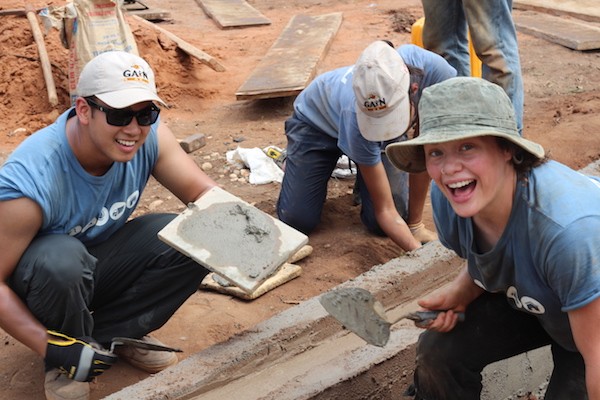
Witnessing, firsthand, the need for clean water also changed her perspective on life back at home.
“Even now, I still reflect on the trip and realize things I had learned, like how fortunate we are. At first I was kind of mad coming home, seeing the stuff that we had and how we don’t appreciate it – even the freedom that we have in church to worship. We have these resources and tools to help others and to use these things that God blesses us with to serve others.”
Part of her life-changing experience was seeing word and deed work together and witnessing how that can change a person’s life.
“As we were working on the well pads, the villagers were watching and wondering what we were doing,” Kyra recalled. It was at this time that some people on the team, with the help of a translator, had a chance to have a conversation with some of the villagers and share God’s message of hope and love.
“When you just love people as Christ would do, it opens up opportunities. When you show them God’s love they begin to ask why. And then you can share that you do it because Jesus loves you.”
WOULD YOU LIKE AN EXPERIENCE SIMILIAR TO KYRA?
DO YOU WANT TO SEE OUR WATER PROJECT FIRST-HAND?
Click here to check out our upcoming LIFE Team projects and/or leave a comment below.
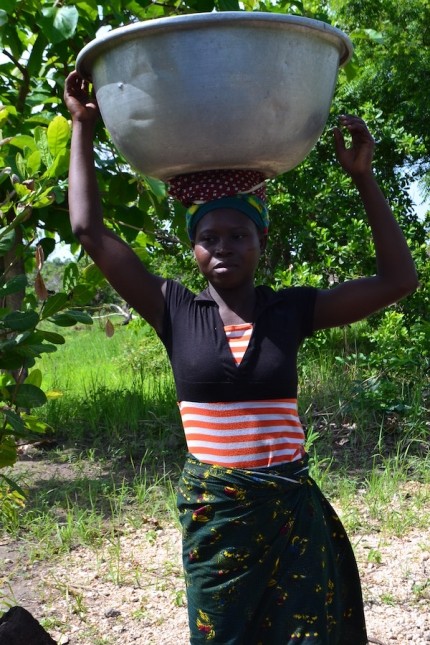
When we visited the village of Adjaha Vodjein, Benin, the team was greeted by Pastor Ansel who hopped off his motorcycle and embraced us with a big hug.
Our Water for Life Initiative had partnered with him and the JESUS Film Church Planting Strategy (JFCPS).
He was excited to see us and expressed how he had seen our strategy work.
“The need for water is really big and it has been a great tool for us to [share God’s love] in this area,” said Pastor Ansel. “The water is really giving true life to every person.”
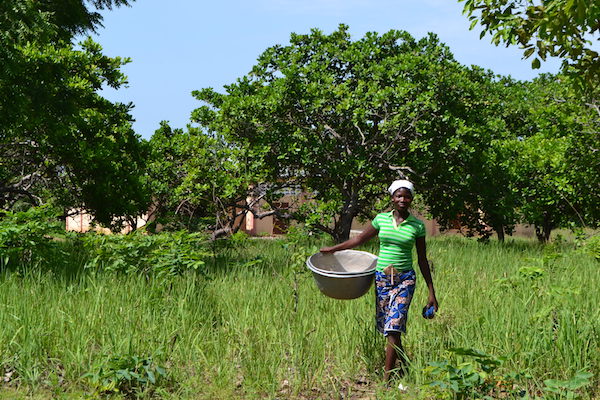
Before the water well, Pastor Ansel told us that they had to spend the entire night just to get a bucket of water, especially during the dry season.
“The presence of the water well in the village has eliminated the fatigue of people and the difficulties that we had to face in the past. I lack words to describe what it means to us! People would sometimes buy water from the city, even as far as Cotonou [a five hour drive] to bring it here. But when they discovered there was a well, they were relieved because they can now depend on it.”
The Pastor also had a vision to further partner with GAiN and reach other communities that are in need of a water well.
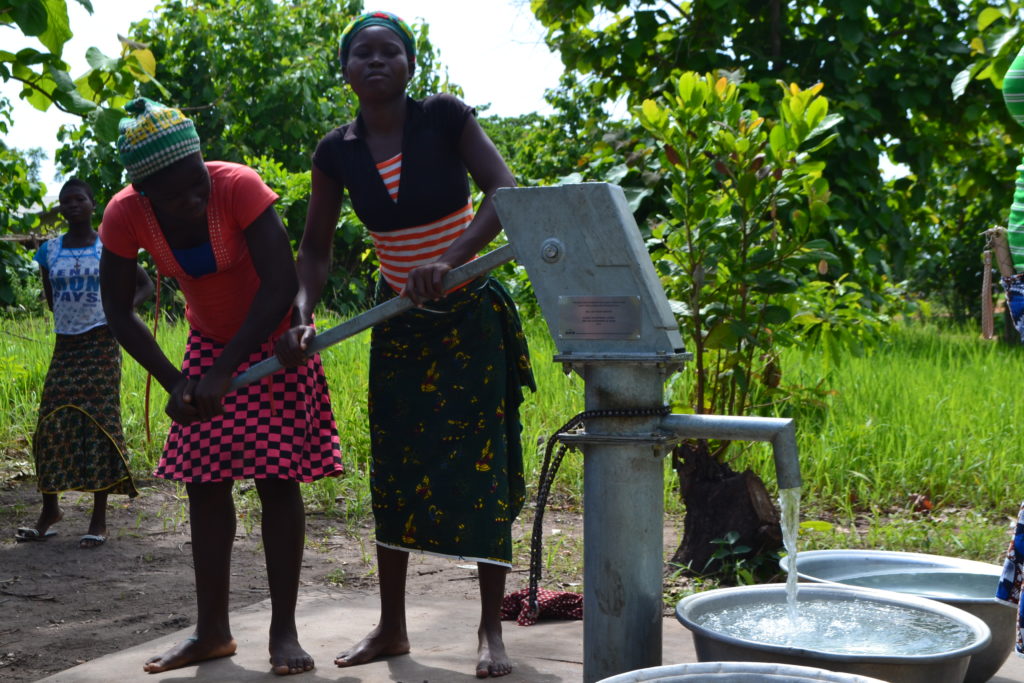
“This really supports us in our work in the village. It has given our church credibility among the villagers. People now understand that the church is an important part in the community.”
Through GAiN’s partner – the JESUS Film Church Planting Strategy (JFCPS) – those who are looking for answers are now finding them in the church.
The JFCPS team has shown the JESUS Film and many asked the pastor to call the JFCPS team back to show the film again.
“We know that there are lots of obstacles and [it is] difficult to share God’s love…But, we have faith that as people drink the clean water, they will not only experience less disease but also hear about the Living Water.”
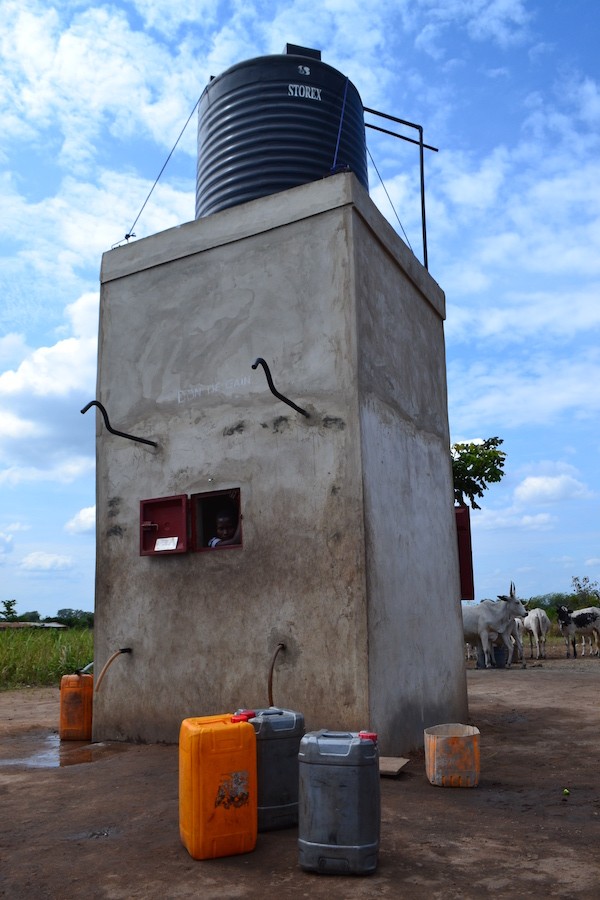
When we arrived to the village of Achechigon, Benin, we were surprised not to see a traditional hand pump in the village. Instead, we saw this imposing concrete structure with a window on its side, two spouts coming out at the top front and two taps at the bottom.
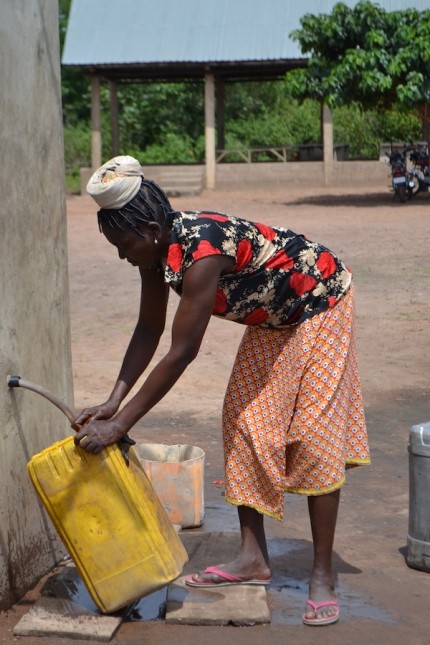
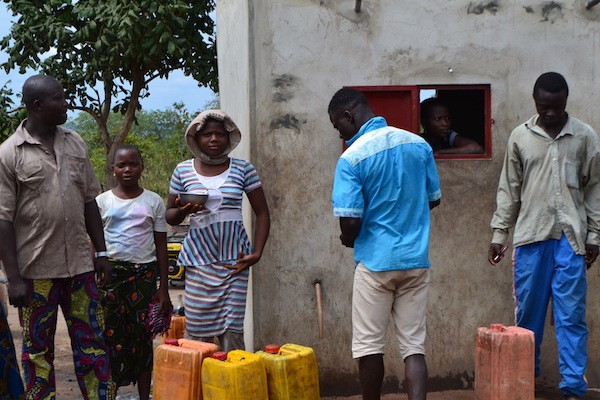
There were a handful of people lining up and getting ready to collect water from the building.
When we had arrived, they were just about to divert one of the taps to fill some drums for a herd of cattle to drink water.
When we provided the well, the community at Achechigon wanted more than just a hand pump, they wanted something that would ease off the burden of fetching water. They were inspired and envisioned a water tower for the village, as it would be the easiest way to get clean and fresh drinking water for everyone.
The community started to research and gather information on the best available technology for a water tower. Little by little, they started to purchase each component necessary to build the tower. They recruited some locals to construct it, including one of the villagers who was a local mason. Together, the community brought their best skills forward to build a tower.
Not only did the community work together to build it, they also pulled together the finances – 2 million CFAs (over $4,000 CAD) – in order to make the building project a reality. There were more than 1,000 people living in the village and the demand for clean water was massive. They understood the need for clean water and were happy to pay for it, knowing that the money would go toward maintaining the water system. This includes putting money toward diesel or parts to repair the generator.
The community sells water for 25 CFA ($0.05 CAD) per jerry can. Part of the monthly revenue goes toward employing an attendant who ensures that people pay for the water they receive. The current balance, after four months, is about 120,000 CFA ($263 CAD) in their village bank account.
Every Sunday, the committee meets to talk about management and operational issues regarding the well. The current ‘hot topic’ was the water packing issues.
A villager said, “This clean water simply transforms our lives. Every tribe in the area, including animals are just so happy that the water well is here.
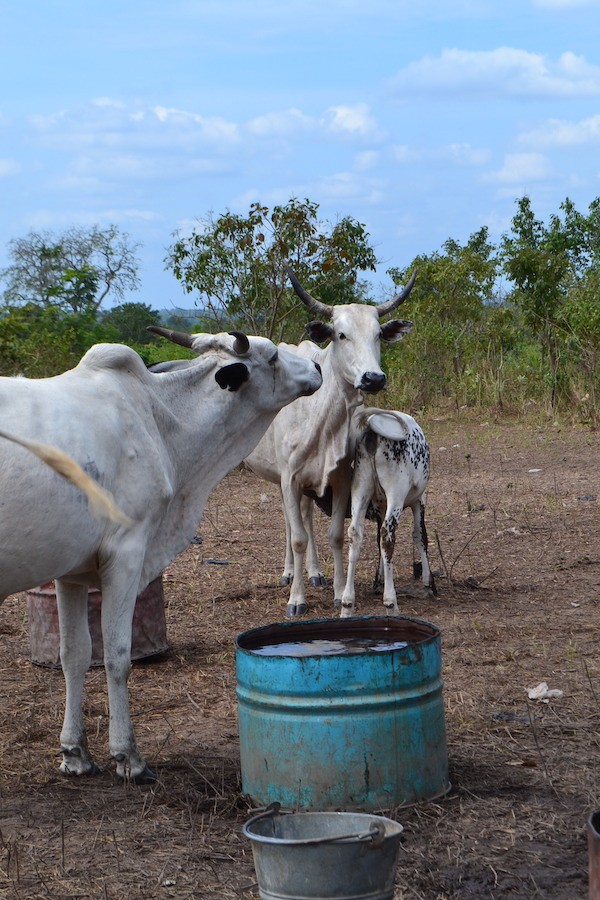
Other people are suffering and depend on us! We must keep the water tower running. I don’t want to see other people suffering.”
There used to be just one well down the road with a foot pump. Men and women used to fight frequently because of the long wait time.
“We like to take this preciously,” said one of the villagers, after noticing the benefits of the well would be easier and faster access to water, which would promote peace in the household.
The difficulty of not finding clean water to drink had forced many to leave their homes and move to other places to settle. The culture in Achechigon is not nomadic, so one could imagine how difficult it must have been to move. With the water well in place and functioning in the village, families no longer had to make this choice. In fact, village life was being invigorated as more people were choosing to settle in Achechigon.
Every person our team talked to showed great appreciation and thankfulness for the well.
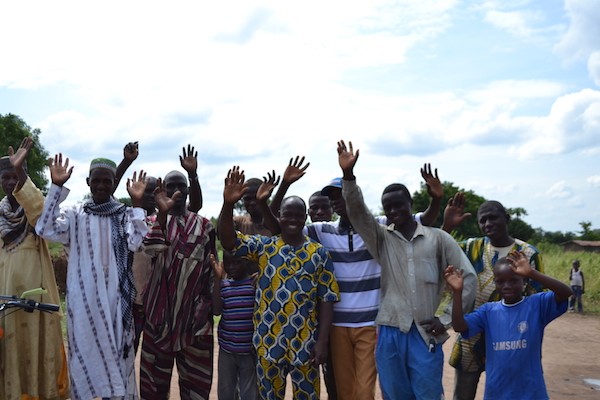
Today, their desire is to see this project replicated in different parts of the village and different parts of the district. This is a great example of how villagers view the water well as more than just a water point — it’s aspirational. Villagers are inspired and motivated to find the best solutions on their own. They all have a sense of duty to ensure that the well is working so others can also enjoy clean water.
The tower was designed with the users and management in mind, to improve the convenience of fetching water. Having the reliable water source is a great indicator that sustainable water service will continue in the village.
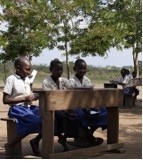
The village of Namauni, located in Tanzania, was able to build a teachers house at the school with the coming of the deep-capped water well.
The school and teacher’s buildings were constructed with small clay bricks, but there were no water sources anywhere near the school, which made construction difficult and costly.
With the well nearby, the construction of the buildings was made much easier. In fact, the well brought down the going cost of bricks from 50 Tanzanian Schillings apiece to 30 Tanzanian Schillings apiece, all because water was readily accessible to make the bricks. The village also expects a housing boom in the near future, in large part because there is a nearby source of clean, disease-free drinking water. Having a nearby source of water will also increase the productivity of needed bricks.
Perhaps the greatest impact is in the lives of the children; particularly the girls. Instead of using valuable time to collect water, they can now spend that time at school getting an education as well as in other village activities.
WOULD YOU LIKE TO HELP OTHER VILLAGERS EXPERIENCE THE SAME TRANSFORMATION IN THEIR VILLAGE?
VILLAGERS DESPERATE FOR HELP
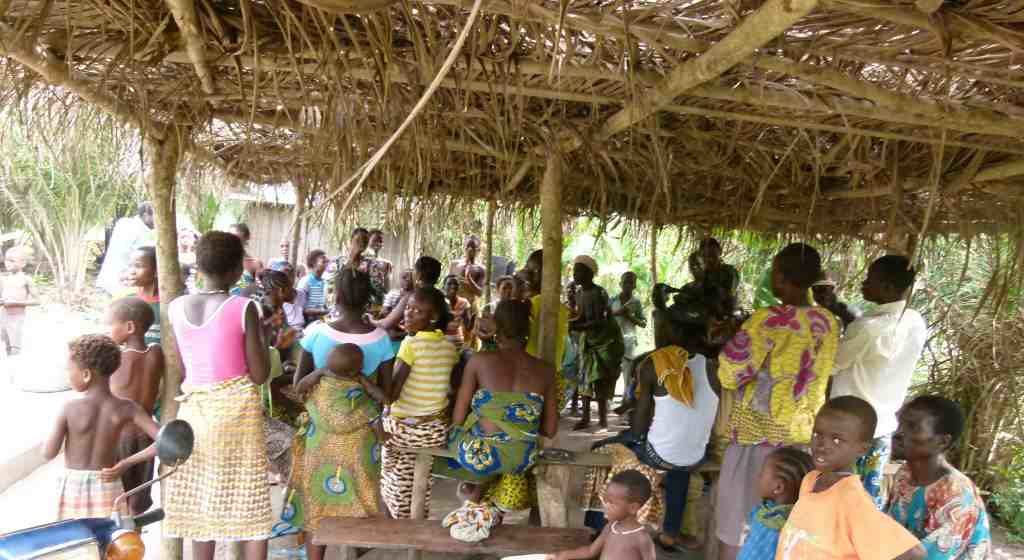
The joy and anticipation that a well brings to a village is difficult to explain to a person that has always had easy access to clean water.
But, for those in Haweme village, they know this desperation far too well. Located in the middle of the jungle in the south of Benin is a village in desperate need for almost every type of service. Locals have referred to it as the “forgotten place”.
After years of suffering from the lack of clean water, Haweme applied for a water well. Since they received no help from the government, villagers lost all hope and never expected to see a well in their village.
Imagine the excitement when – not to long after – GAiN’s team showed up not and told the village that they would soon have a well. They were overjoyed! They had been suffering and for the first time someone took notice.
As a result, their deep-capped well was drilled at the end of 2011.
At the beginning of May 2012, GAiN dropped into the village unannounced to record the thank you video for the donor who provided the well.
To the team’s surprise, there were about 75 people gathered at the well, under a temporary shelter they had constructed. The villagers were celebrating by singing and dancing.
When Patrice, GAiN’s Country Manager, asked what they were doing, they enthusiastically shared they were celebrating the gift of the well. In fact, every five days, the village got together to celebrate the gift of the well! And they said, “we will keep it up!”
They shared that GAiN must be good people because they brought such a good gift. They went on to say, “we are open to whatever you want to do in our village. Come build a church, help us with a school. We are in desperate need of so many things.”
The team assured them that they would be back.
Today, Haweme is a village that has been transformed as they have experienced the love of God in word and deed.
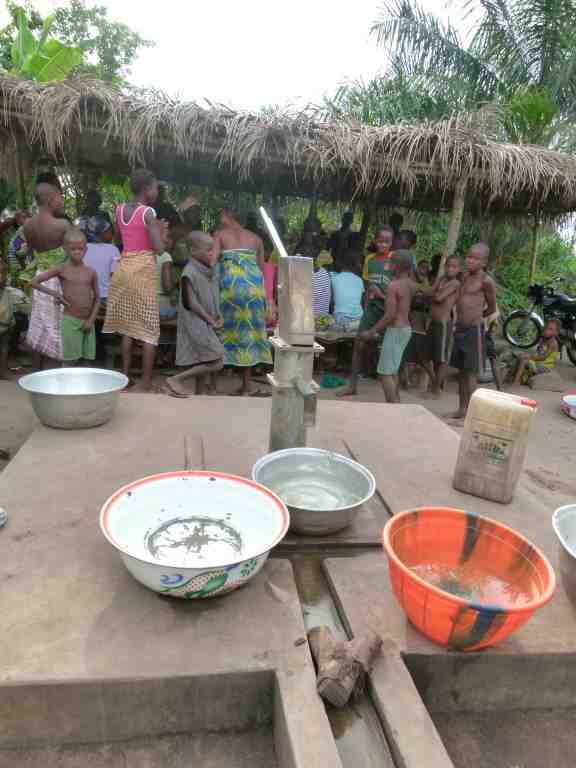
WOMAN FINDS SPECIAL MEANING FROM WELL
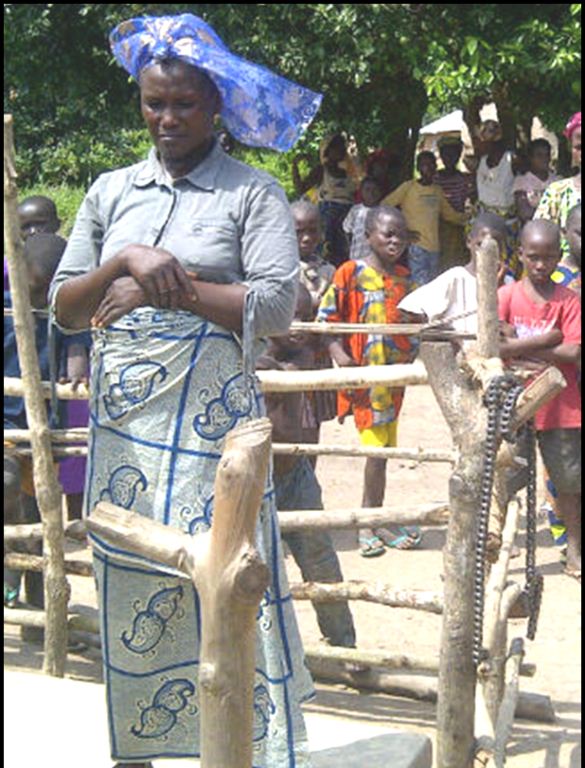
After travelling for eight hours to the village of Goro Bani in northern Benin, the GAiN team was greeted with dancing and singing.
The village’s jubilation was undeniable. The chief gave a speech and expressed how happy they all were. He shared how the women used to walk for hours and cross both the railway track and the main highway to get water from the filthy swamp. The chief explained how the journey was extremely dangerous and that the water was very dirty.
Corimoo, one of the most expressive dancers that day, then spoke to the team. She said that she believed the well was there because of her daughter. She explained that before GAiN provided the well, Corimoo and her daughter went out to fetch water at 2:00 am. one night. Upon arrival, there was a line up at the swamp. Each woman was waiting for the water to seep into a hole that they dug.
After some time, Corimoo finally filled the first bucket and sent her daughter home with it. Corimoo told her to bring the bucket back while she filled the second.
But, her daughter never made it home. She was killed crossing the highway; another innocent life was gone.
Today, the water well is in the middle of the village, so that people are just a few steps away from clean drinking water, eliminating any travel time and danger. Corimoo said she had no words to express her gratitude for the well.
“She didn’t need to. I personally felt it,” shares Dennis Fierbach, Director of Water Strategies. “I was tearing up.” Water has so much more meaning in Benin; water means security, it means dignity, it means health! As they say in Africa – “Water is Life”.
Fierbach reflects, “I’ve been back to Benin a few times since I met Corimoo. I will never forget her and the transformation that the water well brought to her village. I can truly see the difference that a well has made in people’s lives. I know that there are a lot more stories like Corimoo all over the country.”

